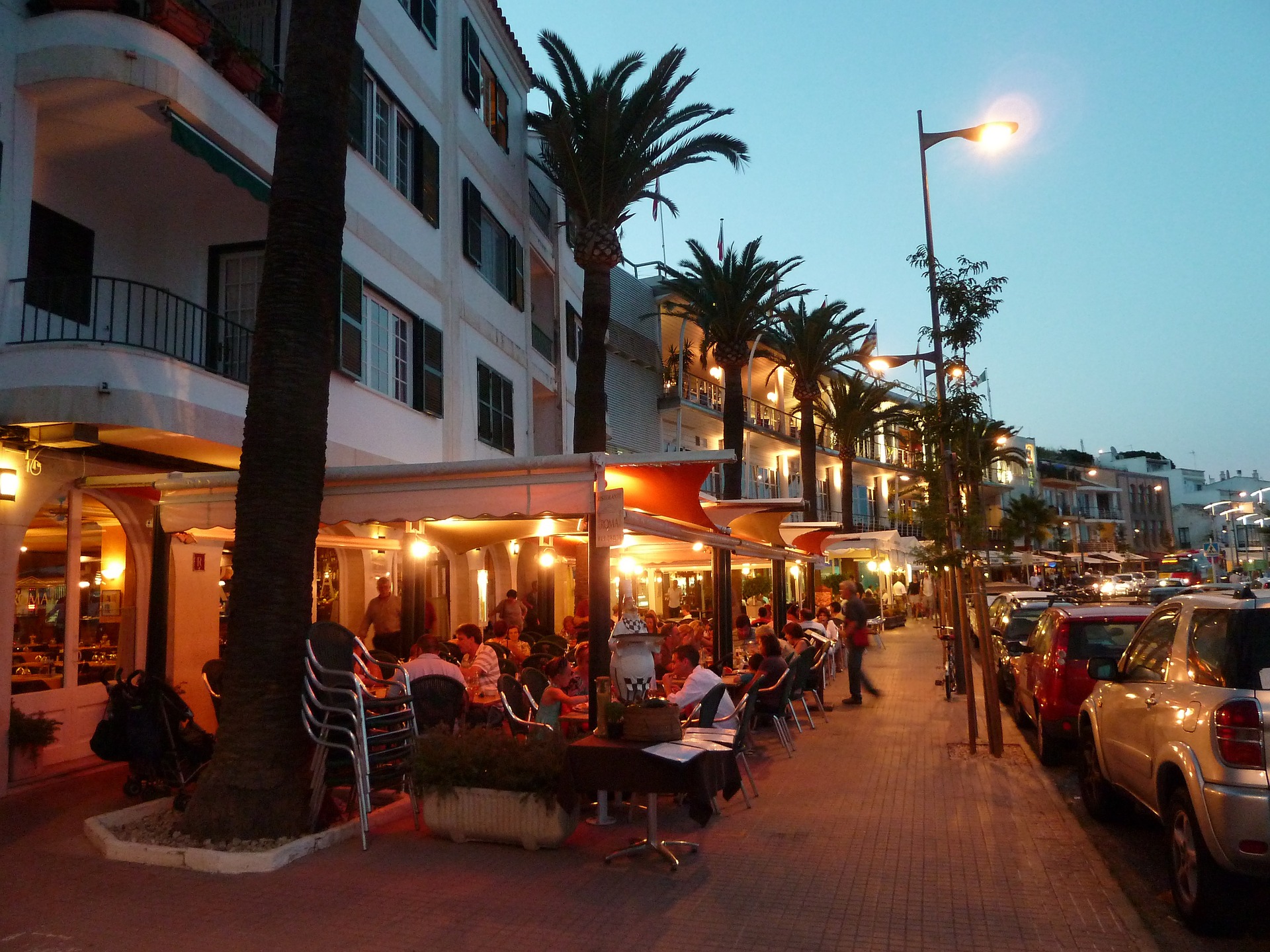Croatia Reports 253 New Coronavirus Infections, 34 Deaths
ZAGREB, 10 May 2021 - In the last 24 hours, there have been 253 new coronavirus infections in Croatia and 34 people have died, the national COVID-19 crisis management team said on Monday.
Currently, there are 8,251 active cases, including 2,033 who are hospitalized, of whom 229 are on ventilators.
Since 25 February 2020, when Croatia registered its first case of this infection, a total of 344,747 people have been registered as having contracted the novel virus, and 7,503 have died.
So far, more than 1.88 million tests have been conducted.
A total of 328,993 people have recovered, including 1,589 in the last 24 hours.
There are 24,039 people in self-isolation.
By 9 May, 1,131,607 vaccine doses were administered. A total of 879,312 people have been vaccinated with at least one dose and 252,295 have received both doses.
Croatia's Coronavirus Update: 1,342 New Cases, 36 Deaths,1,866 Recoveries
ZAGREB, 8 May 2021 - Over the past 24 hours, 1,342 new cases of coronavirus infection have been confirmed in Croatia, and there have been 36 related deaths bringing the death toll to 7,424, the national COVID-19 crisis management team said on Saturday.
The number of active cases in Croatia today stands at 10,705. There are 2,016 COVID patients in hospitals, 235 of whom are on ventilators.
Since 25 February 2020, when Croatia registered its first case of the infection with the novel virus, a total of 343,829 people have been registered as having contracted coronavirus, and 325,700 have recovered, including 1,866 n the last 24 hours.
There are 28,152 people in self-isolation.
To date, 1,871,290 people have been tested, including 7,985 over the past 24 hours when the percentage of positive tests stood at 17%.
One in four adults vaccinated against COVID-19
Since the start of the implementation of the vaccine rollout plan at the beginning of this year, 835,320 people have been vaccinated. Of them, nearly 244,000 have received both shots of the two-dose vaccine.
The Croatian Institute of Public Health underscores that to date 25% of the adult population has received COVID vaccines.
For all you need to know about coronavirus specific to Croatia, including travel, border, and quarantine rules, as well as the locations of vaccination points and testing centres across the country, make sure to bookmark our dedicated COVID-19 section.
Croatia Reports 2,046 New Coronavirus Cases, 49 deaths
ZAGREB, 1 May, 2021 - A total of 2,046 new coronavirus cases have been registered in Croatia in the last 24 hours and 49 people have died from COVID-19, the national coronavirus response team reported on Saturday.
The number of active cases now stands at 14,276. Currently, 2,210 infected people are receiving hospital treatment, including 246 who are on ventilators, and 34,826 people are self-isolating.
Since 25 February 2020, when the first case was confirmed in the country, 334,229 people have been registered as having contracted the novel virus, of whom 7,130 have died and 312,823 have recovered, including 2,228 in the last 24 hours.
So far, 901,120 doses of COVID-19 vaccine have been administered and 702,470 people have been vaccinated, including 501,257 who have received the first shot and 198,650 who have received both shots. For 2,563 people there are no data on how many doses they received.
A fifth of adults have received at least one dose
According to data from the eCijepih platform, a fifth of the adult population in Croatia, or 20.9%, have received at least one dose of vaccine against COVID-19, which is in accordance with the vaccination plan conducted by the Croatian Public Health Institute (HZJZ).
Most of the vaccinated people are 70 years and older, of whom 54% have received at least one dose of the vaccine.
Given a large number of vaccine doses due to arrive in May and June, the HZJZ expects that at least 1,848,462 people, or 55% of the adult population, will be inoculated by July.
For more about COVID-19 in Croatia, follow TCN's dedicated page.
Croatia Logs 410 New Coronavirus Cases, 51 Deaths
ZAGREB, 26 April, 2021 - In the past 24 hours a total of 3,417 tests were conducted in Croatia, with 410 returning positive to coronavirus while 51 people died in that period, that national COVID response team reported on Monday.
There are currently 13,432 active cases in the country, 2,315 of whom are hospitalised patients and 259 of them are on ventilators.
Since the first case was identified in Croatia, there have been 323,036 registered cases of coronavirus in the country and 6,905 people have died as a consequence.
A total of 302,699 people have recovered, with 2,207 recovering in the past 24 hours.
The share of positive cases among those tested in the past 24 hours is about 12%, which is 3% less than last Monday.
There are currently 31,841 people in self-isolation.
To date a total of 1,762,625 persons have been tested.
As of 25 April 795,597 doses of COVID vaccines have been administered, inoculating 627,216 people.
Of that number 456,398 have received the first dose and 168,381 have received both doses, while in 2,437 cases it is not sure which of the two doses they have received.
To read more about coronavirus in Croatia, follow our Covid-19 in Croatia guide.
Croatia Reports 410 New Coronavirus Cases, 39 Deaths
ZAGREB, 19 April, 2021 - In the past 24 hours 410 new coronavirus cases and 39 COVID-19 deaths have been registered in Croatia, the national COVID-19 response team said on Monday.
The number of active cases stands at 13,812 and includes 2,179 hospitalised patients, of whom 199 are on ventilators, while 30,644 people are self-isolating.
To date 1,703,343 people have been tested for the virus, including 2,728 in the past 24 hours.
So far Croatia has registered 308,200 coronavirus cases, 6,601 COVID-19 deaths and 287,787 recovered patients, including 2,227 in the past 24 hours.
For all you need to know about coronavirus in Croatia, make sure to bookmark our dedicated section.
Croatia Registers 44% Increase in Weekly Number of Coronavirus Cases
ZAGREB, 22 March, 2021 - The number of new coronavirus cases in Croatia has increased by 44% in the past week compared with the previous week, and the share of positive people among those tested was 14.3%, the national COVID-19 response team said at a press conference on Monday.
"In the week between 16 and 22 March, we had a total of 6,616 new cases, while between 9 and 15 March there were 4,566 new infections. The number for this week is 44% higher than for the previous week," the director of the Croatian Public Health Institute, Krunoslav Capak, said.
The current 14-day incidence rate is 273.5 per 100,000 people, the lowest being recorded in Virovitica-Podravina County and the highest in Primorje-Gorski Kotar County, where it is 759.9.
Croatia has the eighth lowest incidence rate in the European Union, after Lithuania, Germany, Denmark, Finland, Ireland, Spain and Portugal.
In the last 24 hours, Croatia recorded 150 new coronavirus cases and 13 related deaths, including the death of a 60-year-old person who did not have any underlying medical conditions. All the other people who died had comorbidities and their average age was 77.6 years.
Croatia Reports 431 New Coronavirus Cases, 13 Deaths
ZAGREB, 20 February, 2021 - Croatia has recorded 431 new coronavirus cases and 13 related deaths in the last 24 hours, the national coronavirus response team reported on Saturday morning.
The number of active cases currently stands at 2,421. Among them are 782 infected people receiving hospital treatment, 78 of whom are on ventilators.
A total of 12,001 people are currently in self-isolation.
So far, a total of 1,298,994 people have been tested, including 5,579 in the last 24 hours.
Since 25 February 2020, when the first coronavirus case was confirmed in Croatia, 239,685 people have contracted the novel virus, of whom 5,420 have died.
A total of 231,844 have recovered, including 310 in the last 24 hours.
Headquarters Suspect 10 More Cases of New Coronavirus Variant, Maybe Even Croatian Variant
February 19, 2021 – The National Civil Protection Headquarters said they suspect ten more cases of a new coronavirus variant and that we may even have a Croatian variant. Regarding the epidemiological measures, Davor Božinović pointed out there is still no relaxation.
Today, the National Civil Protection Headquarters held a press conference on the coronavirus situation in Croatia. In the last 24 hours, 388 new SARS-CoV-2 virus infection cases were recorded, and the number of active cases in Croatia today is 2313. Among them, 798 patients are in hospital, of which 73 are on a respirator. Eight people died.
Since February 25, 2020, when the first case of infection was recorded in Croatia, 239,254 people infected with the new coronavirus have been recorded, of which 5,407 have died. A total of 231,534 people have recovered, of which 358 in the last 24 hours.
There are currently 11,725 people in self-isolation. To date, 1,293,415 people have been tested, of which 4,986 in the last 24 hours.
Croatia has the third-lowest incidence in Europe
At the press conference, the latest data on vaccination in Croatia were presented – 93,012 people were vaccinated, and 56,963 people received two doses of the vaccine, meaning that the vaccination was completed for them.
Krunoslav Capak stated that today's number of new cases is 388, a week ago there were 371 new cases, and two weeks ago 549 new cases.
"This is the first time in more than a month that the daily figure is slightly higher than a week ago. The current incidence is 111.4. The highest is in Split-Dalmatia and the lowest in Istria. In the EU, Croatia is in third place. Only Finland and Denmark have a lower incidence than Croatia. The Czech Republic currently has the highest," Capak said.
New quantities of all three vaccines to arrive next week
There were 832 reports of suspected vaccine side effects: 781 on Pfizer, 33 on Moderna, and 18 on AstraZeneca.
Next week, we will get 23,400 Pfizer vaccines. Moderna will send 16,000 doses on February 25. We will get 52,658 doses from AstraZeneca. By the end of March, it will be just over 700,000 doses.
"It is difficult to predict the end of the second phase, but this group includes about one million and 200-300 thousand people, but we do not know how many want to be vaccinated. The vaccination platform will start soon, from which we will draw data, and we will know how many people want to be vaccinated in the second phase, so we will be able to say how much time we will need," Capak said.
Health Minister Vili Beroš referred to the possibility of importing Russian vaccines. He says it all depends on the dynamics of vaccine arrival. However, if the European Medicines Agency does not approve the Russian vaccine, HALMED (Agency for Medicinal Products and Medical Devices) may intervene to introduce such a vaccine. They are considering the possibility and have approached the Russian authorities for additional documentation.
'We expect that the situation will be much better before the summer'
Capak commented on the vaccination outcome.
"It is very difficult to estimate when we will vaccinate most of the population. We also have people who have survived COVID-19. We do not know how long the immunity lasts in those people. We do not know how long the immunity from the vaccine will last. When our immune system rises, there will not be so many sensitive people that the virus can spread quickly. We expect that the situation will be much better before the summer. If you get vaccinated with AstraZeneca, you probably won't have to wear a mask," Capak said.
Journalists were interested if they are at risk and whether they should be vaccinated. Capak said journalists are not in the group of people at risk, but they are priority workers such as airport workers and the like.
"There are many such occupations that will be a priority, and when the time comes, we will make them public. We have a request from the Croatian Journalists' Association to consider the risk and to put journalists among the priorities when the second vaccination phase is completed," said Capak.
About the British, Brazilian, and Croatian variant
Capak also spoke about the British coronavirus variant. So far, he says, we have 11 confirmed cases in Croatia.
"What is new is that the Croatian Institute of Public Health (HZJZ) introduced a screening test for new variants. Yesterday, we tested 17 samples, of which we have ten suspicions of a new variant, and we sent all samples for confirmation to the Infectious Diseases Clinic. We will have confirmation whether they are British variants or not," said Capak.
He also talked about the Brazilian variant of coronavirus.
"The person tested for the mutation does not prove that it is a Brazilian variant, but it is one of the possible mutations and may belong to some other species. I would not call it the Brazilian variant. Maybe it will be called the Croatian variant because it has one mutation that other variants can have," Capak explained.
Still no easing of epidemiological measures
Davor Božinović commented on the possibility of COVID passports.
"This is a sensitive matter because, in Europe, it is considered that there should be no discrimination. And we will set ourselves up practically. We talked to the Ministry. On the one hand, it is still too early. Surely the talks will intensify to see how to do everything in our power to get tourism up and running to record a more successful tourist season than last. We achieved about 50 percent of the results from the record 2019, and by that, we are ahead of all our friends from Europe and beyond. You can be convinced that we are talking about it and that we will find the right path and, through bilateral contacts do everything to make our season as successful as possible," said Božinović.
Next week will be one year since the first case of coronavirus in Croatia. Alemka Markotić referred to the past year. She said that many patients are being monitored and that we will fight with the consequences of COVID-19 for many more years.
Božinović said that it is not yet possible to announce the easing of measures at the moment.
"For us, the decline in the infection cases lasts for more than two months, and we record a small but still growing growth today. I would not give an assessment at the moment. This may be due to cooling. We will see when it warms up how the numbers will move and what they will show in a week or two at the beginning of March," said Božinović.
They will continue to talk and make decisions.
To read morea bout coronavirus in Croatia, follow TCN's dedicated page.
Index: Cafe Terraces Open In Two Weeks If Numbers Stay Low
February 17, 2021 – Indoor sports return and cafe terraces open on Monday 1st March if infection numbers remain low, learns Croatian media outlet Index.
By the time spring arrives, Croatian coffee lovers should be back enjoying their drinks outside their favourite cafe bar. Cafe terraces open on Monday 1st March 2021 if Coronavirus infection numbers remain low and stay on their current trajectory, according to Croatia media outlet Index.
Indoor sports will also return on the same date, with the same stipulation that infection numbers remain low. Having cafe terraces open again cannot come too soon for frustrated business owners. At the moment, they are only permitted to serve coffee to go. According to Index, from on Monday 1st March 2021, cafe terraces open and people will no longer need to congregate on the street outside, in parks or on benches to enjoy their drinks.
“Measures should be further relaxed throughout Croatia as of March 1, including the much-anticipated opening of cafe terraces,” says the portal. Cafe terraces open and other relaxed measures depend on the prerequisite of figures remaining at the level they are at now. “The share of newly infected in the number tested in recent days is below five percent,” Index adds.
Headquarters and the government had already announced that the next round of concessions could be expected in early March. Cafe terraces open in Croatia from March 1st 2021, if Coronavirus numbers remain low, say media outlet Index
Cafe terraces open in Croatia from March 1st 2021, if Coronavirus numbers remain low, say media outlet Index
Croatian cafe terraces open, the interior of cafes and restaurants remain closed
“As we find out, the terraces of cafes and restaurants will definitely open on March 1,” wrote Index. “However, according to information from a source close to the Headquarters, the closed (interior) parts of cafes and restaurants will not be opened. (This) is realistically expected in April at the earliest.”
“Once cafe terraces open, guests will most likely not be able to enter the interiors of cafes and restaurants, except perhaps for the use of toilets, to prevent indoor parts of cafes and restaurants from being used and guests being served there. Closed spaces are still considered by headquarters (to be) an extremely high risk when it comes to the spread of coronavirus.”
Further relaxation of Coronavirus measures: Indoor sports to return
According to Index, although the first information received said that from March 1, only indoor sports for children would be opened, the portal has discovered that instead all indoor sports should be opened, with prescribed epidemiological measures. They remind that, according to current measures, only gyms, swimming pools and contactless individual ball sports are allowed.
Public gatherings / marketplaces / fairs
“There should be concessions when it comes to fairs, but it is not yet completely clear under what conditions,” says the portal. Like supermarkets, open-air and indoor markets are currently permitted to operate. The newly relaxed measures will pertain to similar, but more irregular events at which arts & crafts, books and other goods are on display for sale. The portal say that the vending and consumption of food – which is traditional at such events – will likely not be permitted for now.
“The headquarters is inclined to open fairs where products are sold or exhibited, but the consumption of food and drinks might be limited to prevent excessive gatherings and socializing,” they say.
Relaxation of Coronavirus measures pertaining to private gatherings
“The allowed number of people at various gatherings should not change significantly, only minor corrections are possible,” claims the portal, adding that the current ban on the gathering of people from more than two households may instead be downgraded to a recommendation. The portal reminds that this measure has not been strictly enforced in any way before.
"To give way on March 1, the numbers have to stay at about the level they are now. But the pressure is great - no one wants to keep something closed that should not be kept closed. Most of it is already open, so there remains a narrow circle of what can still be given,” a source close to the Headquarters is quoted as telling Index.
Friction between regional and national authorities over easing of Covid-19 measures
Even if cafe terrace open on March 1st, Index concludes their article by reminding that a disparity between regional and national authorities is still causing some friction. The friction between two north-westerly regions of the country and national headquarters is specifically addressed.
“The Headquarters believes that the announcement of the Istrian Headquarters that they will open the terraces of cafes and restaurants on March 1 was very incorrect. They (national headquarters) say that this opening is planned at the level of the whole of Croatia anyway.”
“However, the decision of the Primorje-Gorski Kotar headquarters, which postponed the opening of bookmakers and casinos in that county, is perhaps even more critically commented on. The government states that the opening of bookmakers (betting shops) and casinos is a purely financial decision and ironically comments that if the Primorje-Gorski Kotar County wants to leave these facilities closed, they should (themselves) cover the costs that will be incurred,” says the Index article.
Index claims that these moves from Istria and Rijeka (Primorje-Gorski Kotar) are regarded in the National Headquarters and the government as politicking and that they are connected with the upcoming local elections.
For the latest travel info, bookmark our main travel info article, which is updated daily.
Read the Croatian Travel Update in your language - now available in 24 languages
Jutarnji List: Croatian Cafes Open on Monday 15 February (and Gyms too)?
February 2, 2021 – The wait is over! In less than two weeks, Croatian cafes and gyms will open, if infection numbers continue on their current downward trajectory
With the spring season just around the corner, people will soon be able to once again enjoy coffee on the sun-filled daytime terraces of Croatian cafes. If Coronavirus infection numbers continue on their current downward trajectory, Croatian cafes and gyms will open on Monday 15 February. All businesses will still have to operate under strict epidemiological measures.
Deputy Prime Minister and the Chief of Staff, Davor Božinović, spoke about the forthcoming concessions on Croatian cafes and gyms, but a fuller picture of how the concessions will actually look was discovered unofficially by Croatian daily Jutarnji List. It was published in the evening of Monday 1st February 2021. The good news soon travelled across Croatia. It will come as a great relief to many independent business owners who have not been allowed to operate.
Business owners have been increasingly on edge over recent weeks, with protest openings of Croatian cafes and gyms threatened to take place in defiance of the current ban on operations (indeed, some did). Owners of Croatian cafes were particularly irked by the seeming inconsistencies in current measures – fast food outlets, gas service stations and bakeries were all permitted to sell coffee to go. People took advantage of this and thereafter congregated on the streets outside such businesses to enjoy their drinks. But, Croatian cafes were still not permitted to service people wishing to drink on outside terraces in almost exactly the same manner.
Monday 15 February has long been announced as the next review date for the imposed Coronavirus measures. But, until now, nobody was certain in which way – if any – measures would be relaxed.
Under unofficial plans, from Monday 15 February Croatian cafes will be able to serve coffee and drinks to be consumed on outside terraces, with strict epidemiological guidelines in place.
Croatian cafes and gyms opening on 15 February will be conditional on a continued downturn in infection numbers and the absence of new Coronavirus strains appearing in Croatia
The re-opening of Croatian cafes and gyms is wholly dependent not only on the continuing downturn in numbers of infected but also on the condition that new strains of Coronavirus - specifically those first detected in the UK and South Africa - do not appear in Croatia between now and then.
"If the indicators are good, if the numbers go down, we will certainly not be reluctant to react,” Deputy Prime Minister Davor Božinović said, regarding the 15 February review, “our aim to strike a balance between everything - with an emphasis on health care - has brought us to a position where Croatia has the least stringent measures in the EU."
Coronavirus infection numbers in some other European territories remain at an alarmingly high rate, although a corresponding relaxation in measures for some regions of Italy was similarly announced over recent days. This is the second time since the start of the pandemic that stricter measures imposed by the Croatian government – and a widespread public observance of these measures and other guidelines - have successfully produced the intended results.


